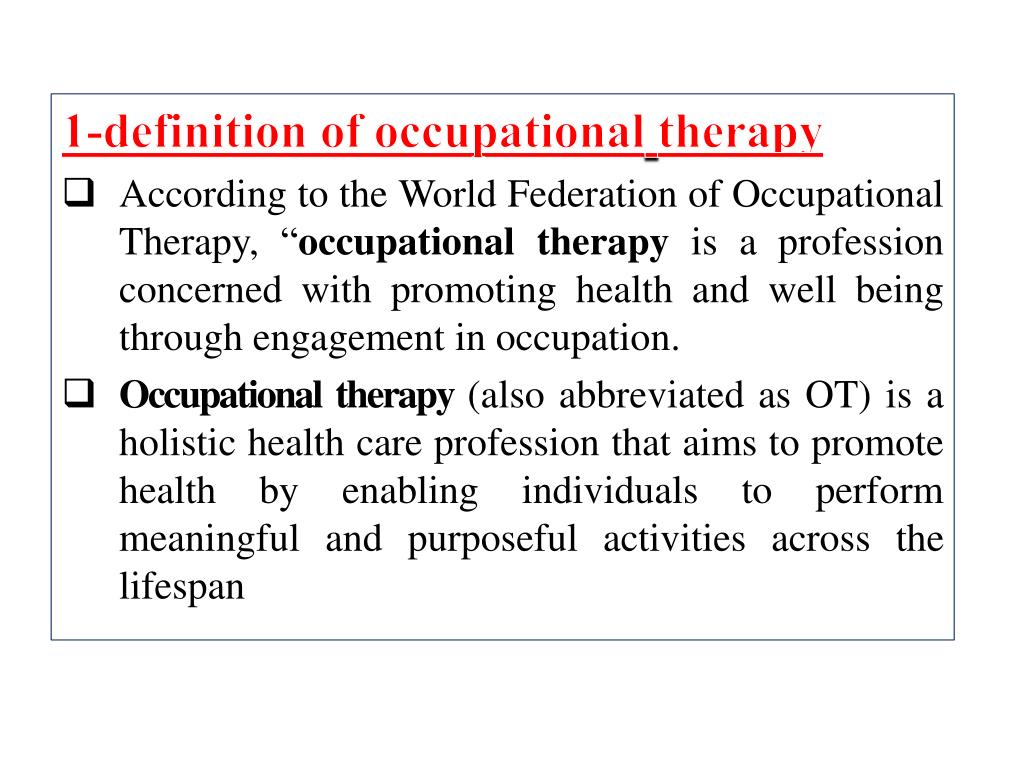


They may then ask to watch the person carry out certain tasks. However, the therapist will usually begin by reviewing the person’s medical history and asking them some questions about what they do in their day-to-day lives. How they do this will very much depend on the person and their needs. Most occupational therapists will have a master’s degree in the subject, and all must receive a license to operate.ĭuring an occupational therapy appointment, the OT will want to evaluate the person’s abilities and goals. The others work in schools, nursing homes, or health services. check to see whether the person is meeting their goals and make any necessary changes to the planĪbout half of the OTs in the United States work in specialist centers or hospitals.design a custom intervention, or plan, that will help the person perform their everyday activities and reach their goals.work with the person and their family to identify their goals.

helping people with disabilities take part in social situations, hobbies, or sportsĪccording to the American Occupational Therapy Association, therapists will:.helping children with disabilities fully participate in school.helping people experiencing changes in how they think or remember things to carry on working.helping people going through physical changes to carry on working.OTs work with lots of people of all ages. Their work centers on adapting a person’s environment so that it better suits them and the things they want and need to do. In contemporary usage, however, a free-lancer is anyone (though usually a writer) who offers his services on a temporary basis with payment upon completion of the work, as opposed to payment in the form of a salary or retainer.Occupational therapists (OTs) offer practical advice and support to help people carry out their daily activities. Eventually the term was applied to unaffiliated politicians. Also known as mercenaries or free companies, these bands were commonly called free-lances in reference to their knightly weapon, the lance. This expression dates from the Middle Ages when, after the Crusades, bands of knights offered their services to any country that was willing to pay. The derivation of this British colloquialism is obvious.įree-lance An unaffiliated person who acts on his own judgment a writer or journalist who submits work to various publishers without actually being employed by any of them a person hired on a part-time or temporary basis to perform tasks for which he has been specially trained. Farrell, Studs Lonigan, 1932)įlesh-tailor A surgeon. He got sore as a boil and stepped up to the lousy flatfoot.


 0 kommentar(er)
0 kommentar(er)
